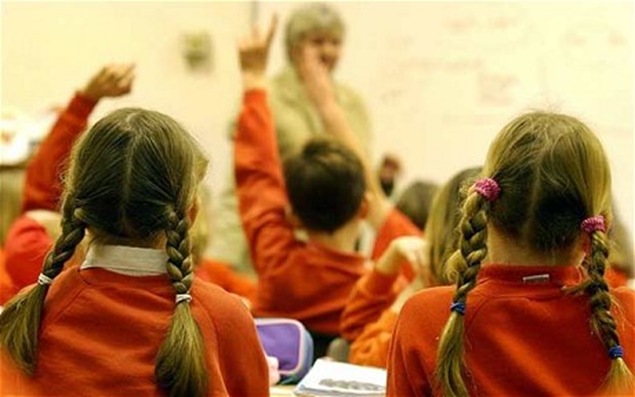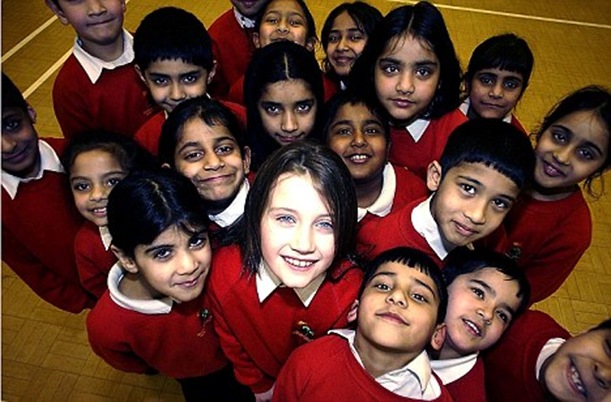Telegraph
February 2, 2014

English is no longer the first language for the majority of pupils in more than one in nine schools, new figures have revealed.
Last year the majority of children in 1,755 primary and secondary schools spoke another language at home following a sharp increase in the number of pupils with foreign born parents.
In more than 200 schools nine in ten pupils do not speak English as their mother tongue, with children speaking as many as 14 different languages.
Across England, the number of pupils who have English as their second language has risen by a fifth to almost 1.1million in the past five years.
Of the ten schools with the highest proportion of children who do not speak english as their first language, all but two are outside London. All but one are rated as either good or outstanding by Ofsted, the schools watchdog.
To help cope with the growing diversity of their pupils, schools have enlisted interpreters to help at parents evenings and bi-lingual teaching assistants for reception classes.
The figure, revealed in Department for Education figures, comes amid concerns that immigration is having a significant impact on public services.
The concerns have been heightened after restrictions on Bulgarian and Romanian migrants were lifted in January.
According to official estimates the number of pupils is to grow by a million over the next decade and reach the highest levels in more than 40 years.

By 2022, the pupil population in England will exceed eight million for the first time since the early 1980s, fuelled by a combination of higher birth rates and an influx of migrants in some areas.
The Coalition has insisted it is taking steps to ease the crisis, with £5billion being spent on school places by 2015.
However Douglas Carswell, a back-bench Tory MP, said that Britain’s needs to have a “national debate” about the impact of immigration on social cohesion.
He said: “Up until now immigration has been all about economics, but we need to start talking about the cultural impact too. We can’t hold it against an individual wanting to come to this country on behalf of their family, but are we doing all we can to integrate and assimilate?
“It’s time for a national debate about the impact of social cohesion in Britain today. I want to make sure that we create first and second generation Britons.”
More than 15,288 primary and secondary schools provided the Department for Education with information about the first languages of their pupils as part of the annual schools census.
Of them, 1,755 schools attended by a total of 835,174 children had a minority of english speakers. The figure has risen by 10 per cent since 2009.
Previous research has suggested that schools where native english speakers are in the minority are almost entirely in London. However, the official figures reveal that they are significantly more widespread.
